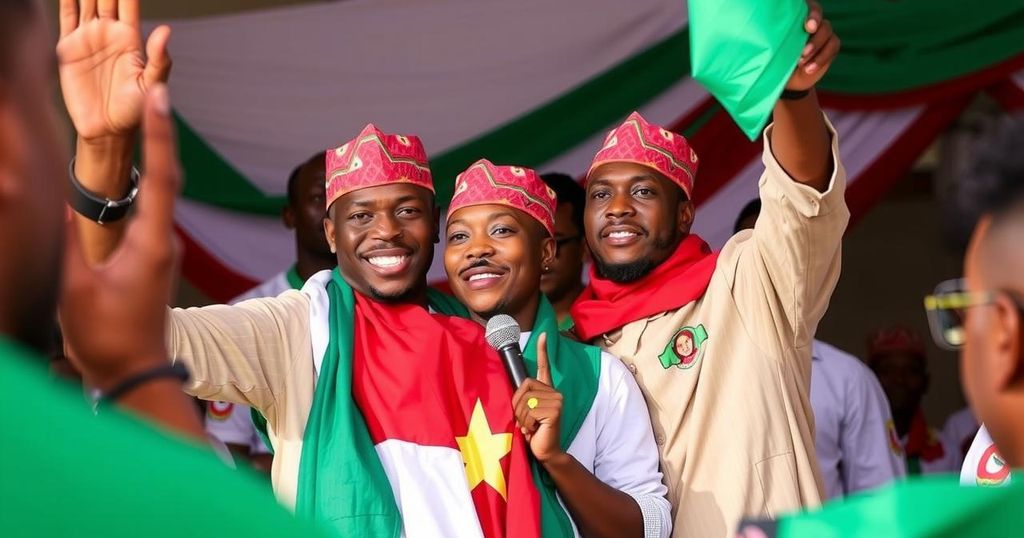Chad’s Ruling Party Secures Majority Amid Boycotted Elections

Chad’s ruling Patriotic Salvation Movement (MPS) has won a majority in the parliamentary elections, which were boycotted by opposition parties due to concerns over fairness. With 124 of 188 seats secured and a participation rate of 51.56%, President Mahamat Idriss Déby continues to assert a commitment to democracy amidst criticisms and geopolitical shifts, including severing ties with France.
Chad’s ruling party, the Patriotic Salvation Movement (MPS), has reportedly secured a majority in the recent parliamentary elections, which were marked by a significant boycott from opposition parties. According to the National Elections Management Agency (ANGE), the MPS won 124 out of the 188 available seats with a participation rate of 51.56%. Ahmed Bartchiret, head of ANGE, announced that 38 different political groups would join the National Assembly, although the distribution of seats among non-MPS members remains unspecified. Opposition leader Succes Masra’s party, along with others, chose to abstain from this election, citing concerns about its transparency and fairness—claims that the government has firmly rejected.
President Mahamat Idriss Deby, who has been in power since declaring himself interim leader following his father’s death in a conflict in 2021, views this election as a step towards establishing a democratic framework in Chad. However, since taking office, recent actions such as ending a defense agreement with France and threatening to withdraw from a regional security alliance indicate a pivot in Chad’s foreign relations, akin to similar movements in neighboring countries.
The government recently announced that it thwarted an alleged attack aimed at destabilizing the presidency, underlining the continuing security challenges in the region. These developments cast a shadow over the legitimacy of the electoral process and raise questions about the future political landscape in Chad.
Chad has experienced significant political upheaval, especially after the death of former President Idriss Déby, who ruled for 30 years until his death in 2021. His son, Mahamat Idriss Déby, assumed power as an interim leader shortly thereafter. The country has been navigating a challenging transition towards democratic governance, amidst persistent allegations of governmental oppression and electoral manipulation. The recent elections were boycotted by numerous opposition groups, further complicating the democratic landscape and raising concerns regarding the inclusivity and representativeness of the government. Additionally, Chad’s geopolitical posture has shifted, influencing local and international alliances, especially with France and rising powers like Russia.
In conclusion, the ruling MPS’s majority win in a boycotted election raises critical questions regarding the democratic transition in Chad. While the government promotes this electoral outcome as a step forward, the participation of opposition parties is essential for a legitimate democratic process. The implications of shifting alliances and security issues in Chad will shape the country’s future, demanding attention and scrutiny from both regional observers and the international community.
Original Source: www.dw.com








